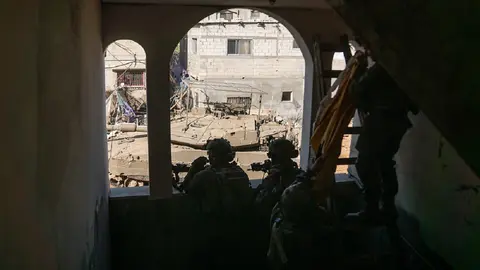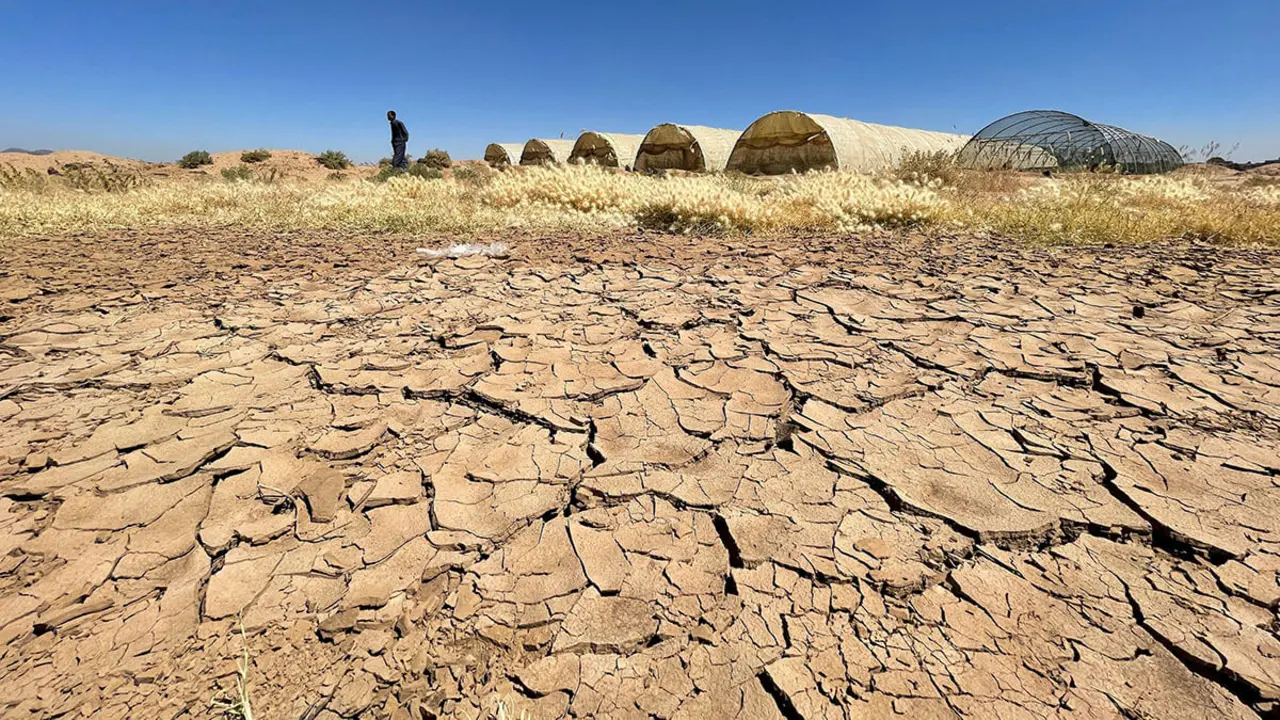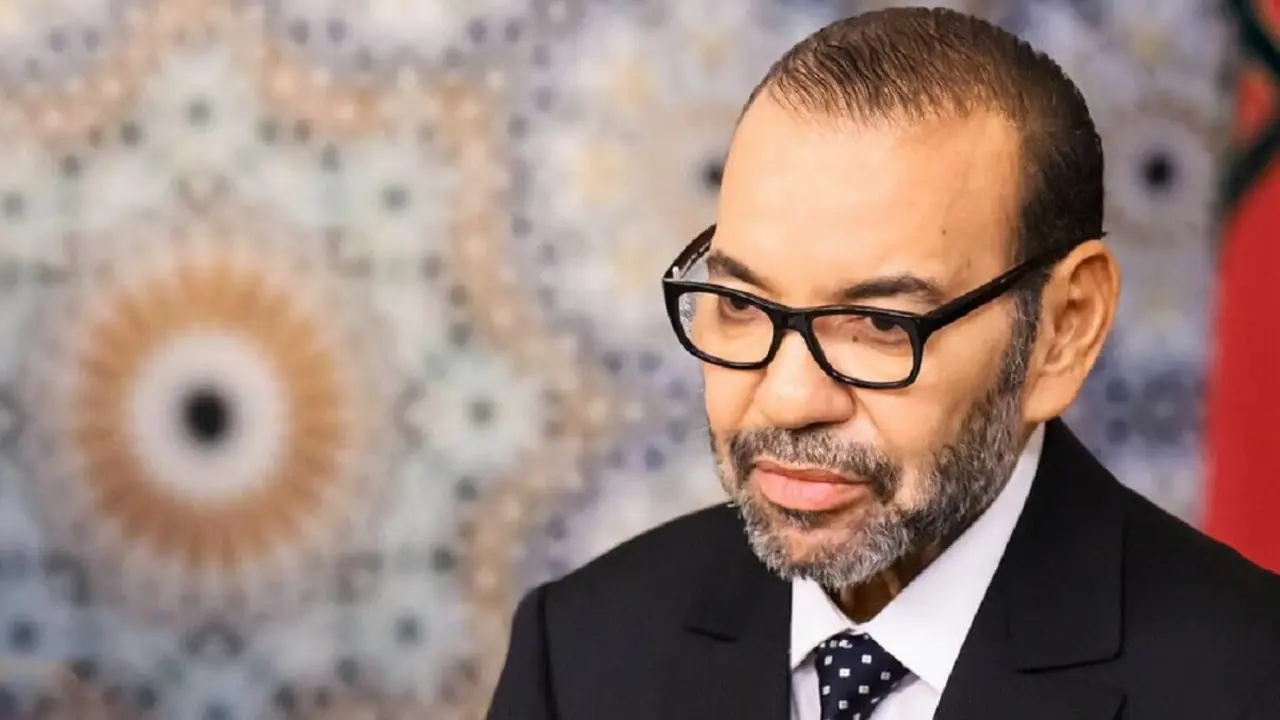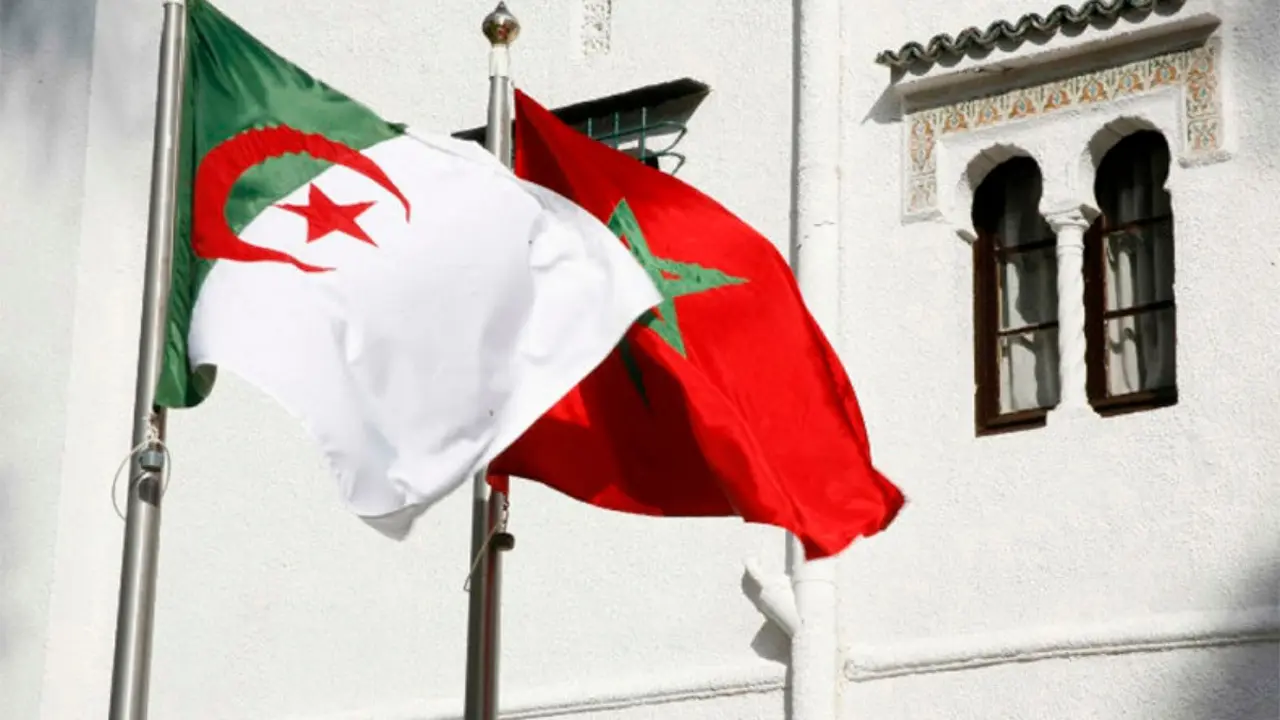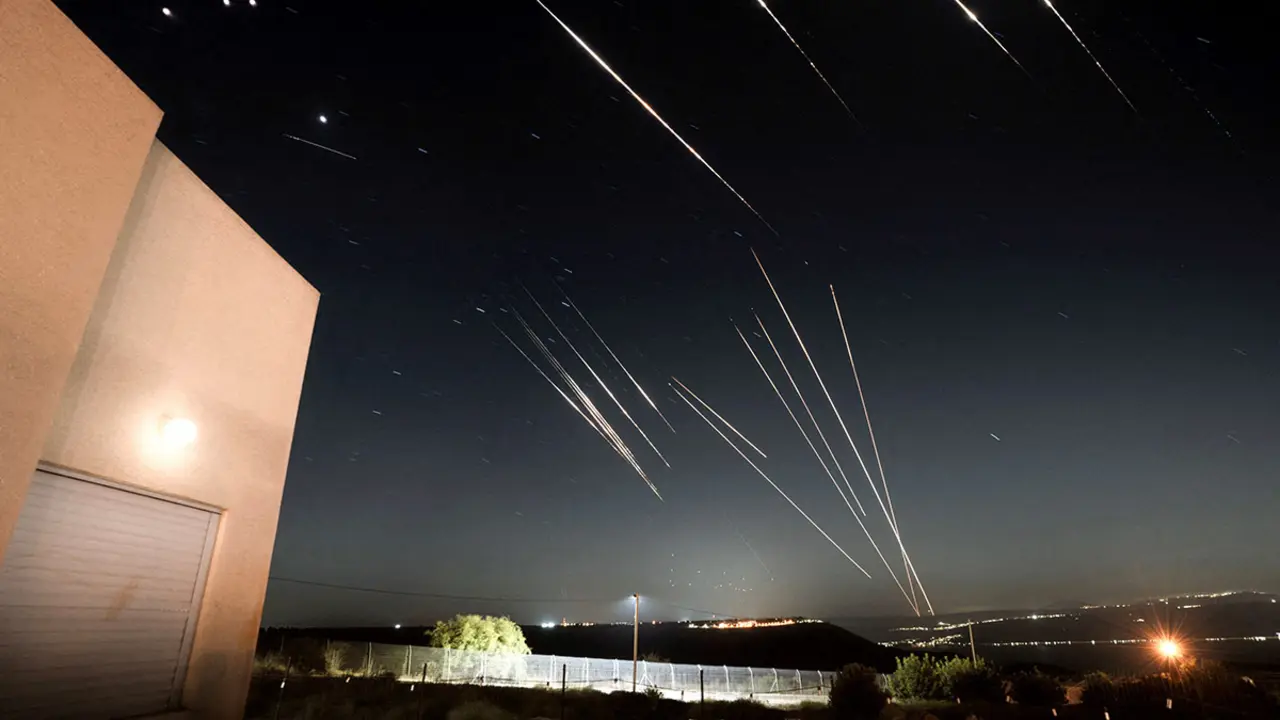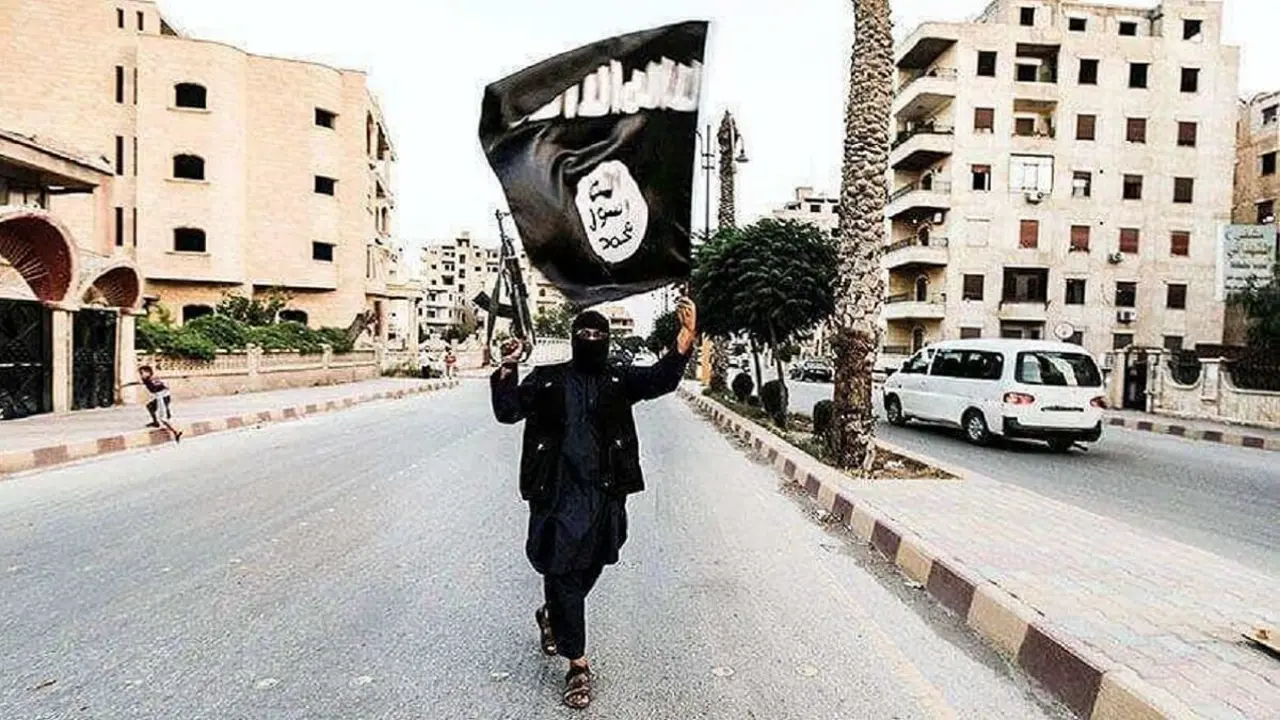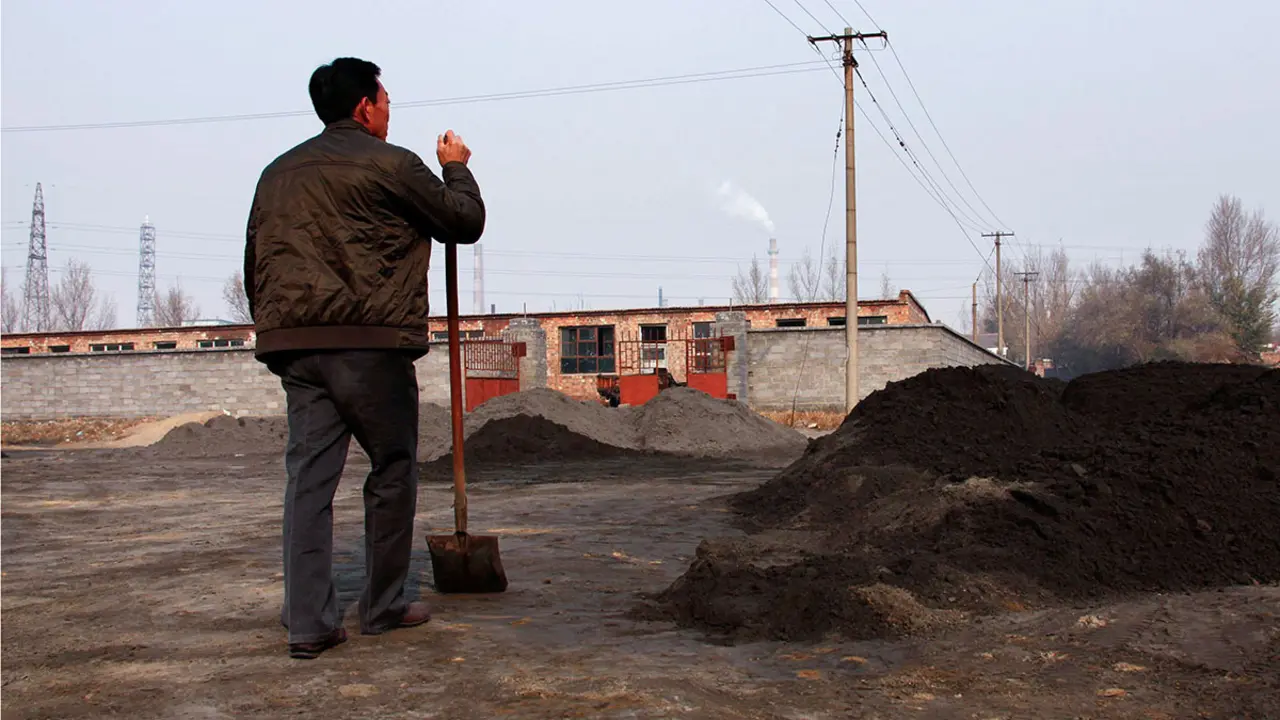Israel's war against Hamas: disinformation, geopolitics and anti-Semitism in the reconfiguration of international alliances
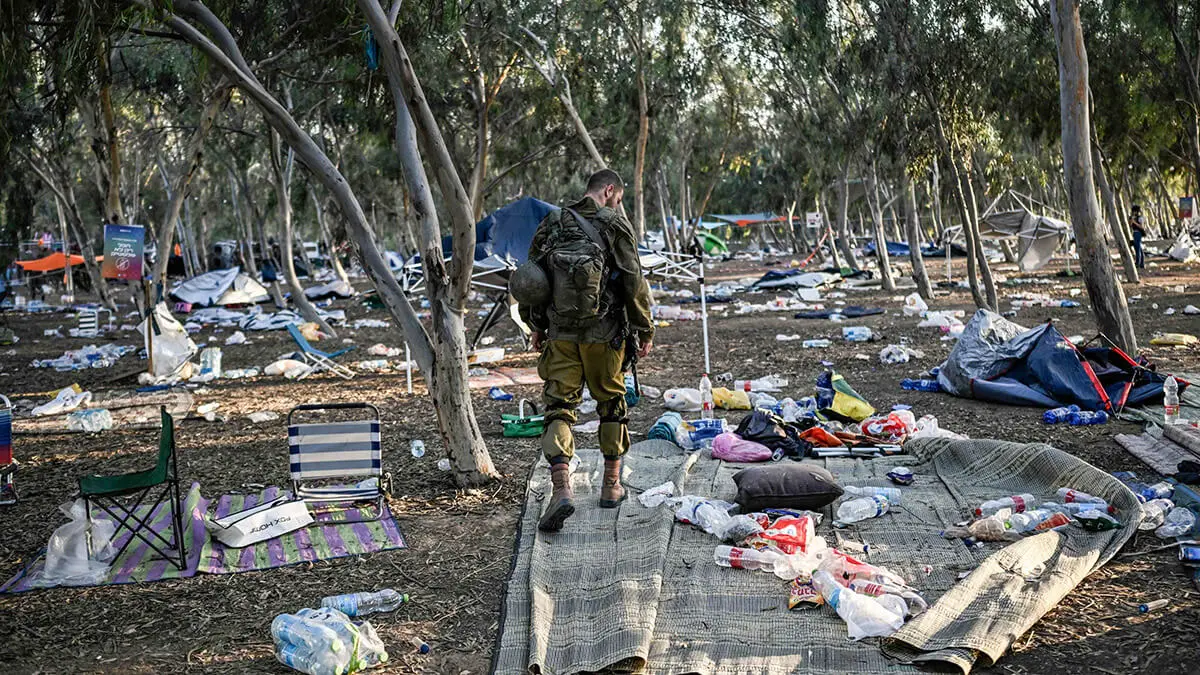
- Introduction
- The context of anti-Semitism and the delegitimisation of Israel in universities
- Anti-Semitism and the Geopolitics of Disinformation
- Conclusions
- References
Hatred or rejection of Jews is not new, but the increase in anti-Semitic incidents and violence, both in the educational environment and outside it, is a phenomenon that since 7 October and the outbreak of the war between Israel and the terrorist group Hamas should be of concern because of the momentum that the alliance between the left and radical Islamism is giving it, and the threat that this strange coalition poses to freedom and democratic values. The success of the anti-Israeli and pro-Hamas protests, far from being spontaneous, follows well-organised and well-financed ideological patterns.
Seven months after the massacre that gave rise to Israel's war against Hamas, geopolitical spin-offs have had their effect on the conduct of a conflict that has no prospect of ending in the short term, and which influences international public opinion, whose narrative has become increasingly radicalised to the point that it could condition the course of the war. The configuration of international alliances seeks the redefinition of an alternative International Order that has not yet been defined and is not yet illuminated.

Introduction
On 22 April, the Quds News Network account on the social network X (formerly Twitter) published undated footage of Essa bin Ahmad Al-Nasr's speech to the Arab League. The video, uploaded by Al-Jazeera's Yemen correspondent Ahmed al-Shalfi, was accompanied by a short text summarising the speech: "Peace can never be achieved with the Israeli occupation because all they believe in is coercion and murder". This senior member of the legislative committee of the Doha Shura Council and deputy commander (with the rank of Brigadier General) in the elite protection unit of the Emir Guard (Intelligence and Security) of the Qatari Armed Forces believes that there can be no peace with Israel because the Jewish people are "murderers of prophets" 1. He further argues that the Jewish Faith does not allow negotiations, tolerates deception, violation of agreements and lying, that it is a fraud (a heresy), and that "October 7 is only the beginning of the annihilation of the corruption that the Zionist entity has spread on earth for the second time" 2.

Ahmad Al-Nasr's words and thoughts matter because of his rank and institutional position, and because Qatar, which hosts Hamas leaders and provides the Gaza Strip with large sums of money, is also the country that plays the role of mediator between Hamas and Israel in the talks for the release of the abducted Israelis 3. And because the leverage it has over Hamas allows it to promote its national objectives and position itself as a central regional actor with global aspirations 4.
Qatar's strategic situation, connected to all actors in the region, and the emirate's relationship with the different actors in conflict 5, poses a major security dilemma for Israel since October 2018, when tensions around the Gaza Strip reached a peak with the so-called "marches of return" and the violent riots that took place. The Israeli government, which at the time was preparing Operation Northern Shield to dismantle Hezbollah's tunnels in the north and needed calm in Gaza to release troops, thought that the transfer of funds to Hamas via Qatar would appease the paramilitary organisation that has ruled the Gaza Strip since 2007 and make it pragmatic, gradually moving it away from violence if it engaged in governance and managing the needs of Gazans. Indulgent approaches to Qatar as mediator have provoked internal rifts in Israel, but also misgivings towards the United States.
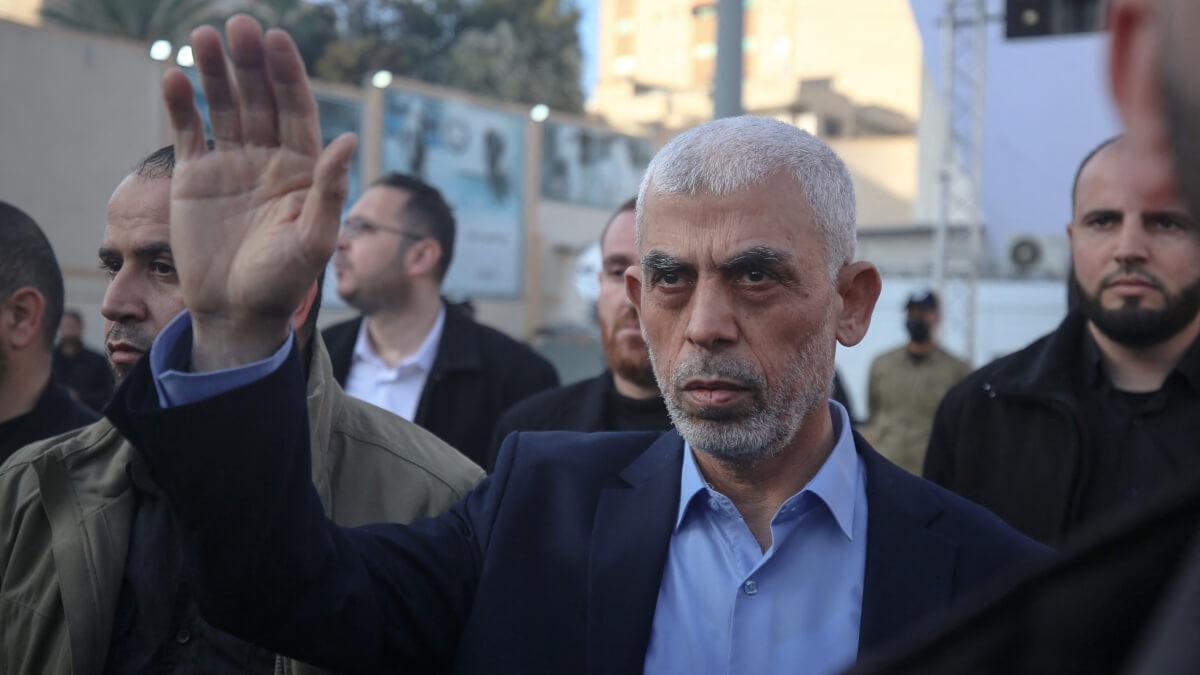
The US administration's national interest, regardless of which party is in power, is to maintain Qatar as an ally in the Persian Gulf against Iran, even if it does not share its values. It is a complex relationship in which US strategic dependence on the Gulf is intertwined with an opaque acceptance of allowing funding and scholarship related to Islam and Middle Eastern studies at top US universities. And the fear of cancellation, in a society deeply influenced by progressive wokeness, leads inexorably to the promotion of illiberal, disruptive and aggressive discourse that exposes the double standards of universities and other educational establishments and beyond in the application of norms and the distribution of responsibilities.
Qatar is not the only donor whose funds flow into education, sport or investment in cultural heritage or real estate. The success of the anti-Israeli protests is that they are not spontaneous, and that the takeover of the education system by entities linked to the Muslim Brotherhood or Wahhabi Salafism is not understandable without the capital they have received over the past decade from foreign governments, foundations and corporations with a rigorist version of Islam and promoting extremist ideologies. The latest study by the Institute for the Study of Global Antisemitism and Politics 7 uncovers the opacity of funding, the correlation between undisclosed funding and antisemitism, and the violation of free speech and academic freedom on university campuses where ideologically fanatical professors have been promoted 8. Anti-Semitism, institutionalised through the use of checkbooks and quiet diplomacy through the funding of professorships, departments and programmes, or the sponsorship of students, translates into very eloquent and concrete figures. 9 Networks of influence and soft power whose effects - the undermining of democratic values - are disseminated in a globalised world under the façade of promoting academic excellence or humanitarian causes 10.
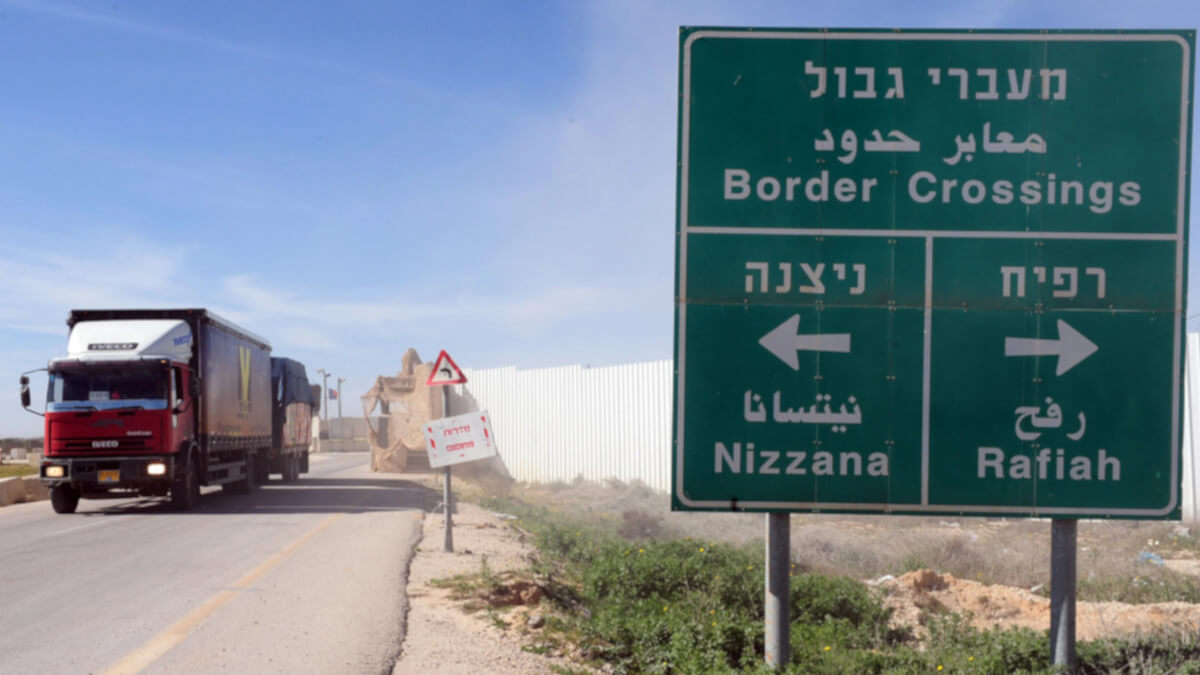
The context of anti-Semitism and the delegitimisation of Israel in universities
Anti-Jewish stereotypes and prejudices throughout history survive, even mutate and transform. In the process of globalisation we are witnessing, the old ideologies and tendencies of classical European anti-Semitism (theological and racist) merge with anti-Zionism 11. Israel, as the central manifestation of contemporary Jewish identity, is the focus of inculpatory rhetoric emanating mainly from the Muslim world (radical political Islam), from a conservative (and sometimes xenophobic) right wing and from all sectors of the so-called "new left", creating conditions that constitute a threat to Jewish individuals and communities in the Diaspora 12. The new left, moreover, largely shares the acceptance of the most violent tenets of the so-called Palestine Liberation Movement. It is what August Bebel called "the socialism of fools",13 which is nothing more than the recourse to ancient hostility towards Jews to strengthen political positions disguised as social justice or defence of a diffuse Palestinian cause that serves to mobilise sentiment. Anti-Semitism is a complex and perplexing form of hatred. It is not the purpose of this article to analyse it, but as lawyer Avi Lehrer points out in his review of Denis MacShare's book, Globalishing Hatred: The New Antisemitism (2009), unless it is the acknowledged ideology of organisations or entities, it is only possible to document manifestations and trends that appear in the media, social networks, banners, graffiti or graffiti. Manifestations that respond to narratives underpinned by conflicting ideologies and identities, such as postmodernism or the controversial Critical Race Theory 14, hence their irrationality and subjectivity.

International emotional priorities have been reoriented. Armoured support for any movement, however perverse, that identifies with cross-cutting struggles and identities should have alerted us many decades ago.15 Vehemently anti-Israeli professors and analysts pass off anti-Semitism as legitimate discourse on Israel and the Middle East. The publication of profoundly anti-Israeli materials by academic departments and research centres, the sponsorship of events, seminars and conferences that demonise Israel, condone and glorify violence against Israeli civilians, or call for the elimination of the Jewish state, is not in the interests of academic excellence. The academic boycott of narratives that do not support the demonisation of the State of Israel deprives researchers and professors of advancement in their respective areas of specialisation and in their personal professional success, but also students, who are denied access to a more balanced, contrasted view that meets the canons required of academic rigour.
The debate over whether anti-Semitism is a consequence of the crisis of modernity affecting the most nuclear elements of Western society and civilisation, or the rise of reactionary forces resulting from the crisis of capitalism, may be a sign of academic health. But beyond the intellectual entelechies, in practice, anti-Semitism and the delegitimisation of the State of Israel in academia and others with influence in shaping the narrative and perception of social reality is a National Security problem and a challenge that is not being handled in the most appropriate way.

In addition to the ongoing protests on major university campuses,16 the United States, Canada, Australia and Europe have also been the scenes of attacks on businesses, family residences, Jewish places of worship or against the personal integrity of individuals because they are Jewish or pro-Israeli.17 In 2019, a report by the Anti-Defamation League focusing on American universities noted that "the hysteria surrounding anti-Israel activism on campuses is unjustified", and that physical attacks on Jewish students are "extremely rare". The activism of the Boycott, Divestment and Sanctions (BDS) movement, while spreading tropes about Jewish power, money and undue influence, did not seem to take root beyond campuses with very specific studies in social science-related fields and geographically concentrated on the East and West coasts and in the Midwest in downtown Chicago, Illinois. Two years later, data from Tel Aviv University's Global Report on Antisemitism indicated that the increase in the number of anti-Semitic incidents reached levels not seen since World War II. The 2023 Report, which Tel Aviv University has published in conjunction with the Anti-Defamation League to coincide with the commemoration of Holocaust Remembrance Day (Yom Hashoah), described as "worrying", notes that in just one year it has gone from a relative increase in incidents (106% compared to 2022) to a prediction that Jewish life in the West may be severely compromised, to the point where it becomes impossible to use defining features of Jewish identity, such as a Star of David, to attend Jewish schools, to form Jewish university student associations, to access kosher food or to speak Hebrew 18.

Incidents that are increasingly spreading beyond the university sphere, organised by workers' unions, professional organisations, independent activists or groups recruited through social networks. The Gaza war has boosted pro-Hamas propaganda, increased hate speech against Jews worldwide and calls for violence (up 357% since 7 October) 19. Support for terrorism, the concealment of radical roots, the formation of cross-cutting alliances, some on the margins of the political spectrum, is not harmless. The worrying rise of anti-Semitism in Europe, the United States, Canada and Australia is not just an expression of a discourse traditionally associated with marginalised sectors of society, but is at the heart of the public-political debate of parties and even governments. Without leaving Europe, leaders of different ideological persuasions in Germany, France, Great Britain, Spain and Ireland, for example, deliberately use anti-Semitic expressions to gain advantage that contaminate public discourse and polarise 20.
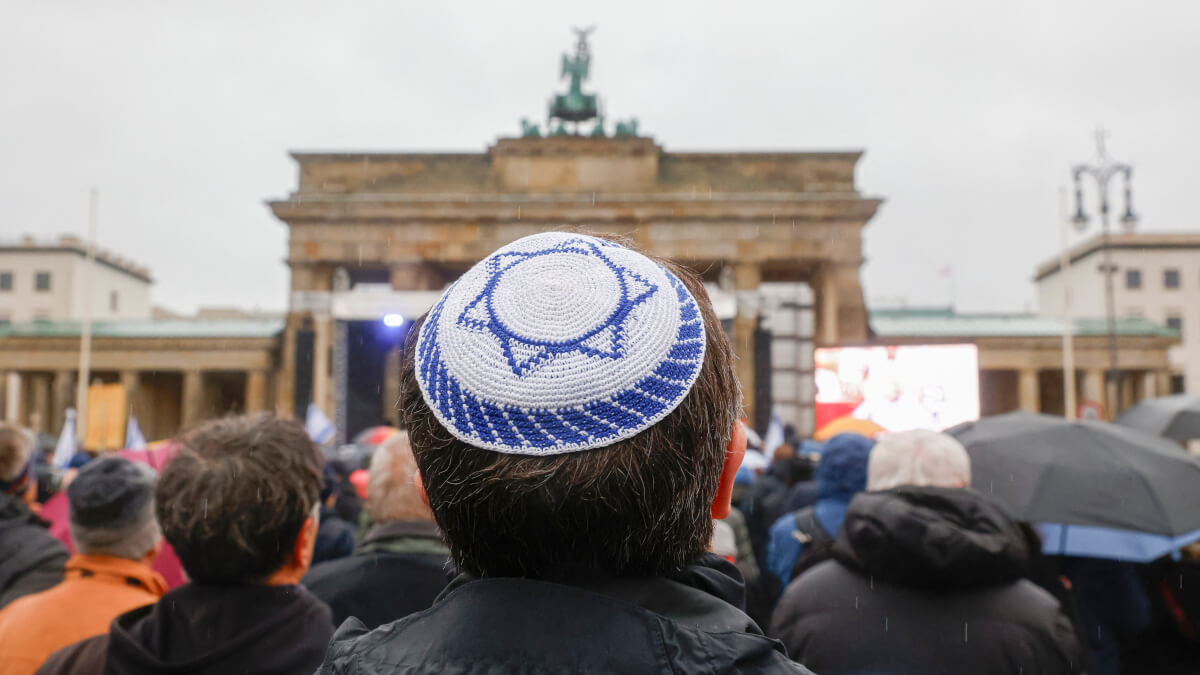
Post-modern approaches shape the consciousness of the younger generation. The open ideological identification with Hamas and other subversive, even terrorist, movements is a success of this new anti-Semitism, reflecting ideological transformations in Western societies, which takes the form of a social movement with demands that pass for legitimate ones.21 The lines between freedom of expression and freedom of assembly are increasingly blurred.
Calls to subvert the democratic order and liberal values are but a symptom of a deeper culture war, confronting a West unable to make decisions without falling into political correctness and unable to lead a viable model of society in a world challenged by ideological and geopolitical revisionism. The strange alliance between Islamist extremism, the anti-Semitism of some Muslim communities in the diaspora and the jihadists' enablers among the progressive left completes the picture of a microcosm that presents an uncertain challenge.
The idea of the caliphate in Europe as a solution to what they see as "the dictatorship of Western values" is also spreading through social media with seductive messages. The constant and gradual effort by certain extremist elements in the West to conquer space for Islam has been boosted by the excuse of stopping the war in Gaza.22 The commitment to protect Jewish communities in the West has been undermined by the need to protect the Jewish community in the Middle East.
The commitment to protect Jewish communities and combat the rise of populism and violent extremism transcends Jews. For the vision of Israel linked to anti-Jewish conspiracies also understands Judaism in terms of power and privilege. And this means that by identifying Jews, Israelis and supporters of the state of Israel as imperialists, racists, Nazis or white supremacists, they are delegitimised and their suitability for leadership positions is questioned precisely because of their perceived Zionist beliefs and identification with Israel.
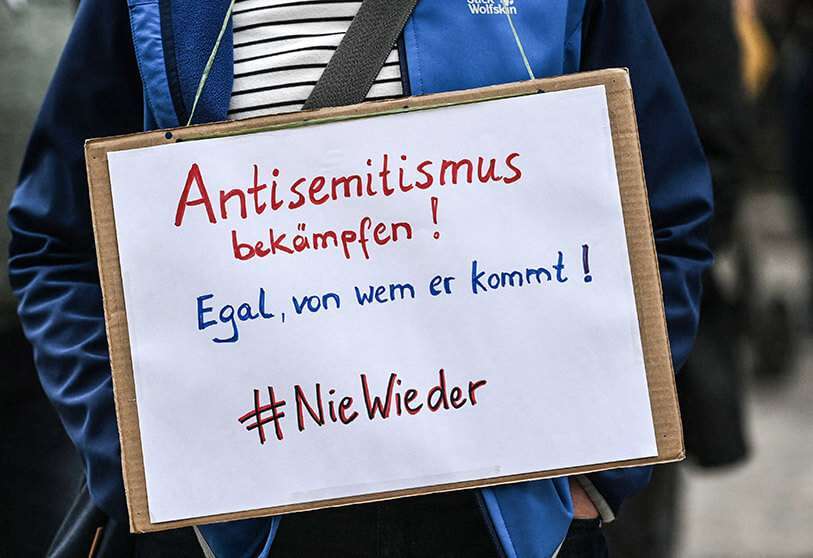
Anti-Semitism and the Geopolitics of Disinformation
Islamic anti-Semitism, while not limited to Islamist movements, is a key element in the ideological war that radical Islam wages against the modern world. The essence of Islamic anti-Semitism is the fusion of Islamic anti-Judaism (or Judeophobia) with modern European anti-Semitism. And it is also a foreign policy problem that will be carefully addressed in another paper.
In the Middle East, mass demonstrations organised by movements such as the National Forum for the Support of Resistance and led by the Muslim Brotherhood also contribute to instability in countries across the region. Concern that Iran will interfere through its proxies in Jordan's affairs and that a domino effect will destabilise Gulf countries as well is a recurring theme in the regional press. The Islamic Resistance in Jordan has connections to Kataib Hezbollah, which in turn follows the Iranian Revolutionary Guard's guidelines. The creation of smuggling and arms corridors to the West Bank, which could be used by Iran to expand its presence along the Jordanian-Israeli border, or the arrival of the Muslim Brotherhood in the Hashemite kingdom's government, is a powerful enough reason to weigh the risk of dropping a monarchy that is not particularly sympathetic to the Israeli government but is utilitarian.

The Gaza war today is fought internationally as well as cognitively. Language creates truth and determines attitude, even if various sources test this emotional reality that has entered popular discourse. In the collective unconscious, the inversion of reality where Israel is accused of genocide, ethnic cleansing, apartheid state or usurper of a territory that does not belong to it, ignores the historical processes that shaped today's Middle East, but also exonerates from responsibility actors whose aim is not peaceful coexistence or liberation but violent resistance and the elimination of a recognised state and member of the United Nations 24.

Conclusions
The 7 October massacre and subsequent war waged by Israel against the Hamas terrorist organisation in Gaza, far from provoking solidarity and empathy with the Israeli victims, has triggered an increase in anti-Semitic incidents and hostility towards Israel around the world described as "worrying" by agencies and institutions that monitor radical language and attitudes, with an exponential increase in violent attacks on businesses, private homes, community or religious institutions, rioting on university campuses and turning them into violent encampments, harassment, threats or intimidation of Jews or people expressing pro-Israeli views.
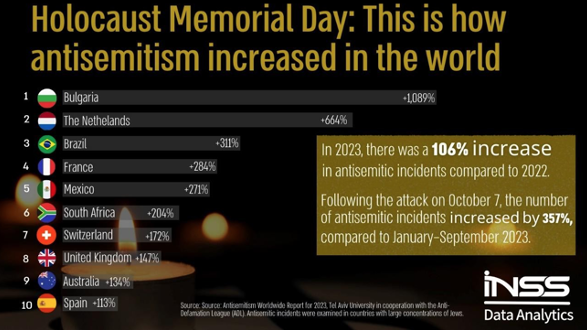
Mass demonstrations legitimising terrorist organisations or waving seemingly innocuous banners and slogans mask the desire for the cancellation or elimination of the State of Israel. Although anti-Semitism, Judeophobia and anti-Zionism come in forms that are difficult to define, their dangerousness lies in the fact that they distort the way we understand the world, as individuals and as a society. Some of the slogans that are heard are reminiscent of traumatic moments in the past for the Jewish population and for the conscience of humanity. Addressing the lessons from the Holocaust and the uniqueness of this genocide in light of the 7 October massacre, at a time of rising anti-Semitism in the wake of the geopolitical storm unleashed by the Gaza war, can lead to misunderstandings of what these two events mean if inaccurate parallels are drawn.
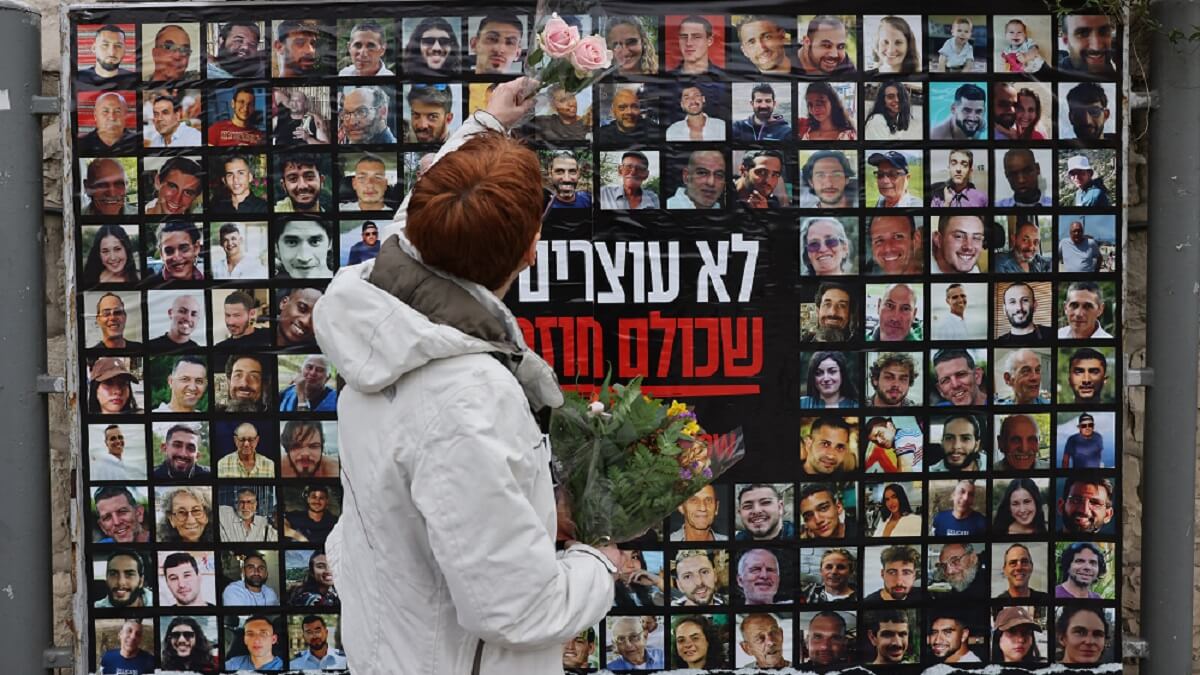
The influence operations of radical nations, organisations and movements in the US and Europe appear to be contributing to hostility towards Jews and Israel on campuses. The belief that the creation of the State of Israel was Western compensation to Jews for the Holocaust ignores religious and historical ties to a land that goes back thousands of years. But it is also the result of the implementation of a progressive agenda that spreads anti-Semitic and anti-Zionist rhetoric as hallmarks of a healthy democracy and freedom of expression. The redefinition of Jews - and Israelis - as serial oppressors and potential genocidaires provokes insecurity in a numerically minority and dispersed community that feels it is not enough to be good citizens to remove the stigma that remains attached to their identity.

Tackling anti-Semitism is a matter of community health and of national and international security. The collaboration of all political and social sectors, including digital platforms, is essential to combat disinformation that has nothing to do with the legitimate defence of the cessation of war or respect for human rights. Slogans such as "Free Palestine" or "From the river to the sea"; chants calling for Jews to "go back to Poland", graffiti reading "kill the Jews" 25, banners with swastikas or swastika messages or the assimilation of Israeli politicians with Nazis, are expressions of a political anti-Semitism focused on the cancellation or elimination of Israel, intentionally exploited by self-styled pro-Palestinian groups and ignored by university administrations. And Jewish students, or those who take a pro-Israel stance, suffer the consequences of the defamation, delegitimisation and dehumanisation of a country that is declared the world's Nazi, apartheid, criminal, genocidal or colonial state.
Marta González Isidoro
Minerva Institute
References
1. Essa bin Ahmad Al-Nasr's speech is collected and translated by the Middle East Media Research Institute (MEMRI) on 24 April 2024. "Qatari Shura Council Member Essa Al-Nassr: October 7 Was an Introduction to the Annihilation of the Zionist State; There Can Be No Peace with Them; They Are The Slayers Of The Prophets", MEMRI, April 22, 2024. Available at: https://www.memri.org/tv/qatar-shura-council-menber-essa-nassr-october7-introduction-annihilatione- zionist-state-n…
2. God's Promise to the Jews of the Land of Israel appears in the Bible. But radical Islam thinks that the Land of Resurrection is the land of Palestine, the place where the final battle will take place. For the second warning to be fulfilled (the first is for the Jews to dwell in the land), the Jews scattered all over the world must gather in the land of Palestine so that the next generation can fight them and annihilate them for good.
3. According to various estimates, Qatar has transferred some 5 billion dollars to Hamas over the past decade, while hosting the organisation's political leaders, including Ismail Haniyeh, Khaled Mashal and Moussa Abu Marzuk, on its territory.
4. CASTRO TORRES, José Ignacio. “Del poder blando al poder sutil: el caso de Catar”, Documento de Análisis IEEE 38/2021. Available at: https://www.ieee.es/contenido/noticias/2021/10/DIEEEA38_2021_JOSCAS_Catar.pdf
5. Qatar maintains close relations with Iran, and its pragmatic foreign policy allows it to combine its soft power influence with the sponsorship of terrorist and radical organisations. It has hosted the spiritual leader of the Muslim Brotherhood, Sheikh Yusuf al-Qaradawi, one of the most important judges of Islamic law, and operates the Al Jazeera television channel, considered a destabilising media outlet for moderate Sunni regimes such as Egypt and Jordan.
6. Also among the intelligence agencies: the Mossad, which is in charge of relations with Qatar, traditionally interested in preserving good relations with the emirate. In contrast, the Shin Bet, the internal intelligence service, which manages relations between Israel and Egypt, maintains a less friendly attitude.
7. The Institute for the Study of Global Antisemitism and Politics (ISGAP), founded and directed by Asher Small, emerged in 2004 as an international network of academics and philanthropists in response to the rise of antisemitism, which was already beginning to be perceived as a problem with political ramifications in the early 21st century. In 2006 it supported the creation of the Yale Initiative for the Interdisciplinary Study of Antisemitism (YIISA) at the university level. The findings of the report presented in July 2019 are revealing. "Follow the Money. Qatar and the Muslim Brotherhood Funding of Higher Education in the United States", ISGAP, July 2019. Available at: https://www.isgap.org/follow-the-money/
8. One example is UC Berkeley Middle East Department researcher Professor Hatem Bazian, founder of the NGO Students for Justice for Palestine (SJP), spearhead of the Boycott Divestment and Sanctions (BDS) movement, and the man behind the pro-Palestinian demonstrations on US campuses.
9. CHAFFIN, Joshua. “Qatar´s ties to US universities scrutinized amid rise in antisemitism”, Financial Times, March 17, 2024. Available at: https://www.ft.com/content/d0a16f75-8b05-4ff9-b5f1-d473d7f5a704
10. Among others, through organisations and movements such as Students for Justice in Palestine (SJP) or the American Muslims for Palestine (AMP), part of the Muslim Brotherhood. Already in October 2019, a comprehensive study on SJP's ideological and financial background examined connections with terrorist organisations. Recommended reading is the 2024 Report which analyses the explosion of anti-Semitic violence on American campuses in the wake of the October 2023 Hamas attacks. "National Students for Justice in Palestine (NSJP): Antisemitism, Anti-Americanism, Violent Extremism and The Threat to North American Universities", ISGAP, 2024. Available at: https://www.isgap.org/wp-content/uploads/2024/05/SJP_Report.pdf
11. Opposition to Zionism, which is the movement for self-determination and statehood for the Jewish people in the land of Israel. It differs from criticism of the Israeli government or criticism of specific positions and policies of the Zionist movement prior to the creation of the state in 1948 in that it attacks the foundations and foundational legitimacy of Israel as a state in its Jewish statehood. "Backgrounder: Anti-Zionism", ADL, 28/09/2022. Available at: https://www.adl.org
12. Radical Islam holds that Jewish self-determination in Muslim lands is a sin that should not be tolerated. In the West, anti-Zionists see Jewish obstinacy in self-determination (existence of the state of Israel) as the cause of radical Islam, jihadism and political instability in the region.
13. MARTIN LIPSET, SEYMOUR, “The Socialism of Fools”, The New York Times, Jan 3, 1971. Available at: https://www.nytimes.com/1971/01/03/archives/the-socialism-of-fools-the-new-left-calls-it-antizionism- but-its.html
14. A theoretical framework, which emerged in the US during the second half of the 20th century, that explains racial and gender inequality as structural and systemic at all levels of life. To achieve equity and dismantle racist and sexist structures, its proponents advocate subordinating rights considered fundamental, such as freedom of expression. What began as an academic discipline has become an element of social polarisation because it has legal and real consequences in the life of every individual. We recommend reading the following text which explains in detail the principles on which this controversial theory is based: MASON, Bradly. "Introducing Critical Race Theory", Also a Carpenter, September 13, 2021. Available at: https://www.alsoacarpenter.com/2021/09/13/introducing-critical-race-theory/
15. At the Durban Summit in South Africa (2001), curiously within the framework of the World Conference against Racism, the "complete and total isolation" of Israel from the international community was expressly called for. It was at this point that the campaigns to boycott, divest and sanction (Boycott, Divestment and Sanctions, BDS) Israel and to consider it a pariah state in the international concert were born. Alliances between supporters of BDS and the Black Lives Matter movement have increased speeches of censorship and acts of violence on university campuses and beyond.
16. FISHER, Gideon and MELAMED, Sagi. “The rise of antisemitism on college campuses”, The Jerusalem Post, November 17, 2022. Available at: https://www.jpost.com/opinion/article-722593
17. SPENCER, Robert. “Netherlands: Pro-Hamas students attack Jewish students with boards as security officials watch idly”, Jihad Watch, May 7, 2024. Available at: https://www.jihadwatch.org/2024/05/netherlands-pro-hamas-students-attack-jewish-students-with- boards-as-securit...
Pro-Palestinian demonstrators have also disrupted the three-kilometre march from the Auschwitz and Birkenau death camps on Yom Hashoah (Holocaust Remembrance Day). SÁNCHEZ, Rosalía. "Pro-Palestinian demonstrators interrupt the "March for Life" in Auschwitz", ABC, 07/05/2024. Available at: https://www.abc.es/internacional/manifestantes-propalestinos-interrumpen-marcha-vida-auschwitz- 202405071122
18. The report, produced by the Center for the Study of European Jewry Today and the Erwin Kotler Institute for Democracy, Human Rights and Justice at Tel Aviv University, includes in-depth analysis of 10 countries and social media profiles with a high impact on the dissemination of anti-Semitic and/or anti-Zionist tropes. "AntisemitismWorldwide Report for 2023", The Center for the Study of Contemporary European Jewry and The Irwin Cotler Institute Democracy, Human Rights and Justice, May 2024. Available at: https://www.cts.tau.ac.il/wp-content/uploads/2024/05/AntisemitismWorldwide_2023_final.pdf
19. DEITCH, Mora. Holocaust Memorial Day: “This is how Antisemitism Increased in the World”, INSS, 05/05/2024. Available at:: https://www.inss.org.il/social_media/holocaust-memorial-day-this-is-how-antisemitism-increased-in- the-world/
20. MOLINA, Rafael. "La ministra Sira Rego llama a exterminar a los judíos de Israel: Desde el río hasta el mar!", OKDiario, 8/05/2023. Available at: https://www.okdiario.com/espana/ministra-sira-rego-llama-exterminar-judios-israel-desde-rio-hasta- mar-12797649
In Spain, although anti-Semitism is not a politically organised phenomenon precisely because of the insignificance of the Jewish community (less than 30,000) and the uniqueness of the country in the context in which the Holocaust took place, the virulence of the image of the Jew in an atypical case that has come to be called "anti-Semitism without Jews" is surprising. We recommend reading the "Informe sobre el Antisemitismo en España 2022", Observatorio de Antisemitismo, Federación de Comunidades Judías de España (FCJE). Available at: http://www.observatorioantisemitismo.fcje.org
21. Political anti-Semitism that assimilates Israel as a Nazi state and declares it apartheid or criminal, racist and genocidal, does not generate the rejection it should. On the contrary, intolerant representations in favour of boycott, divestment and sanctions (BDS), pro-Palestinian activism, slogans such as "Justice for Palestine", "Free Palestine" or "From the river to the sea! which are slogans generated by the Palestine Solidarity Committee and the National Boycott Committee (based in Ramallah and including terrorist organisations such as Hamas, Islamic Jihad and the Popular Front for the Liberation of Palestine), are widely celebrated and sanctioned as ethically and morally elevated.
22. Demonstrations in favour of implementing an Islamic caliphate or reversing liberal laws have multiplied under the cover of university protest camps. At the end of April, the Muslim Interaktiv association, a front for Hizb ut Tahrir (Liberation Party), demonstrated in the Sank Georg district of Hamburg to call for regime change in Germany and the implementation of Sharia. In the UK city of Leeds, criticism of the Muslim representative's attitude in the city council was silenced as Islamophobic. DOUGLASS-WILLIAMS, Christine. UK: Green Party councillor who shouted "Allahu akbar" accuses critics of "Islamophobia" after backlash", Jihad Wacht, May 8, 2024. Available at: https://www.jihadwatch.org/2024/05/uk-green-party-councillor-who-shouted-allahu-akbar-accuses- critics-of-islamop...
23. A false Al Jazeera report, later denied, claiming that Israeli soldiers had raped Palestinian women during an operation in the Gaza Strip in March, is providing the excuse for the wave of violence and mass demonstrations that have been taking place since then in front of the Israeli embassy in Amman. The intensity of the protests, apart from posing a risk to the stability of the kingdom, raises serious security concerns for Israel. Support for the armed resistance movement to liberate Palestine and connections to Iran's proxy in Iraq (Kataib Hezbollah) bring Iran's influence closer to Israel's own border.
24. Evidence of social support within the Palestinian population for racist attitudes towards Jews, historical revisionism and education for violence is numerous and well documented.
25. Graffiti at Qeens University. "Antisemitism on college campus on the rise", op. cit WOODS, Amanda. "Kill the Jews" scrawled on wall of NYC subway station: NYPD", The New York Post, October 20, 2023. Available at: https://www.nypost.com/2023/10/12


